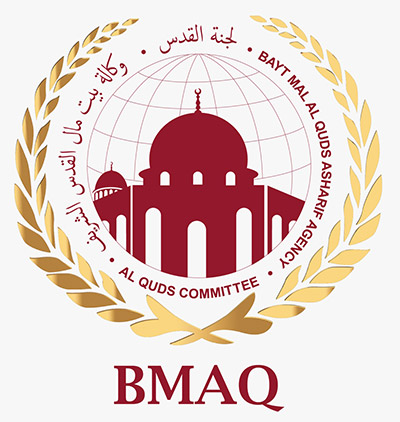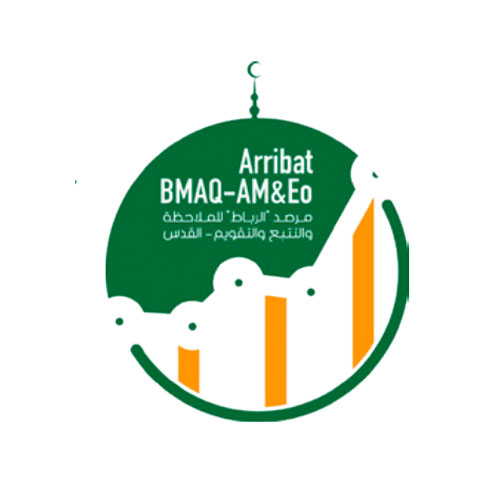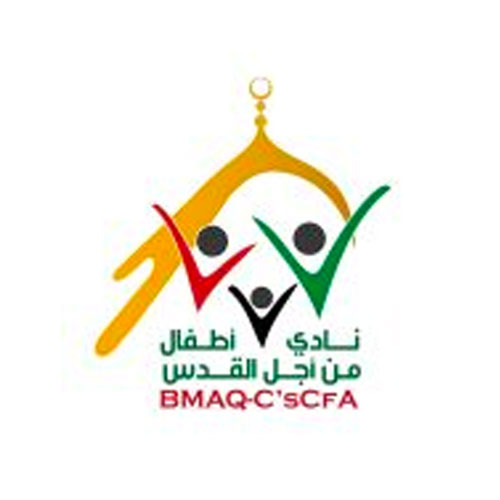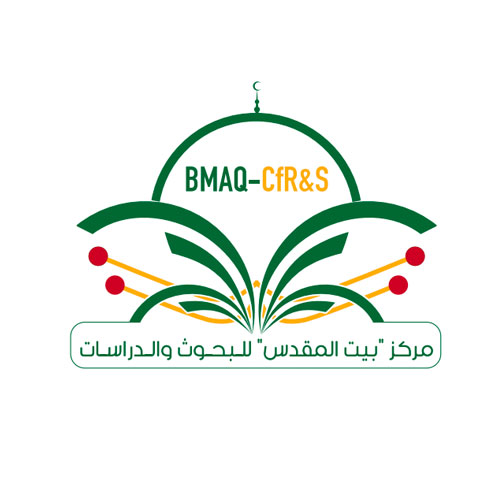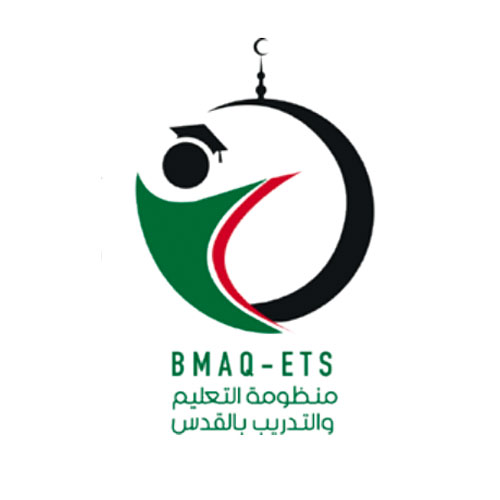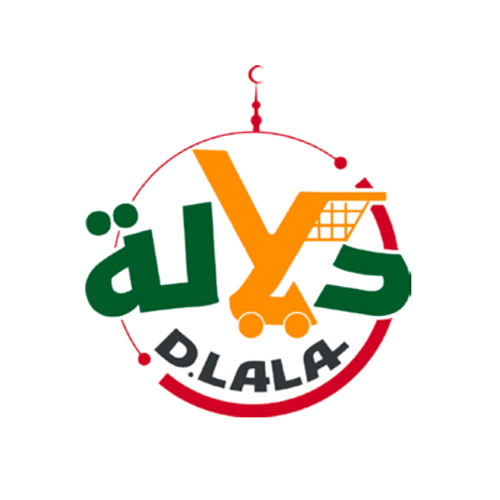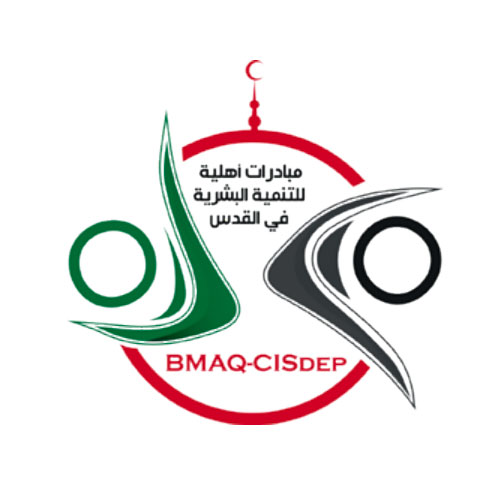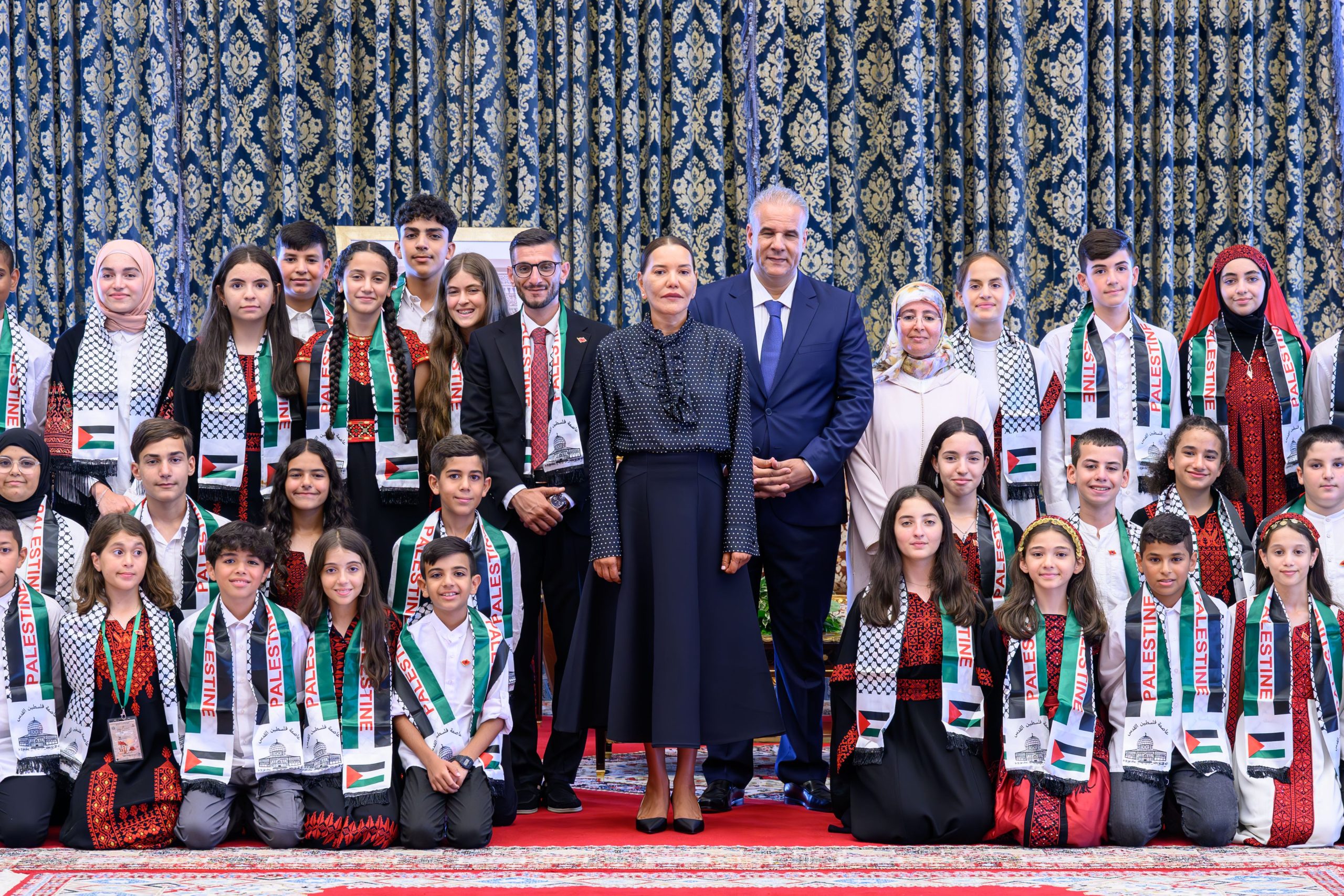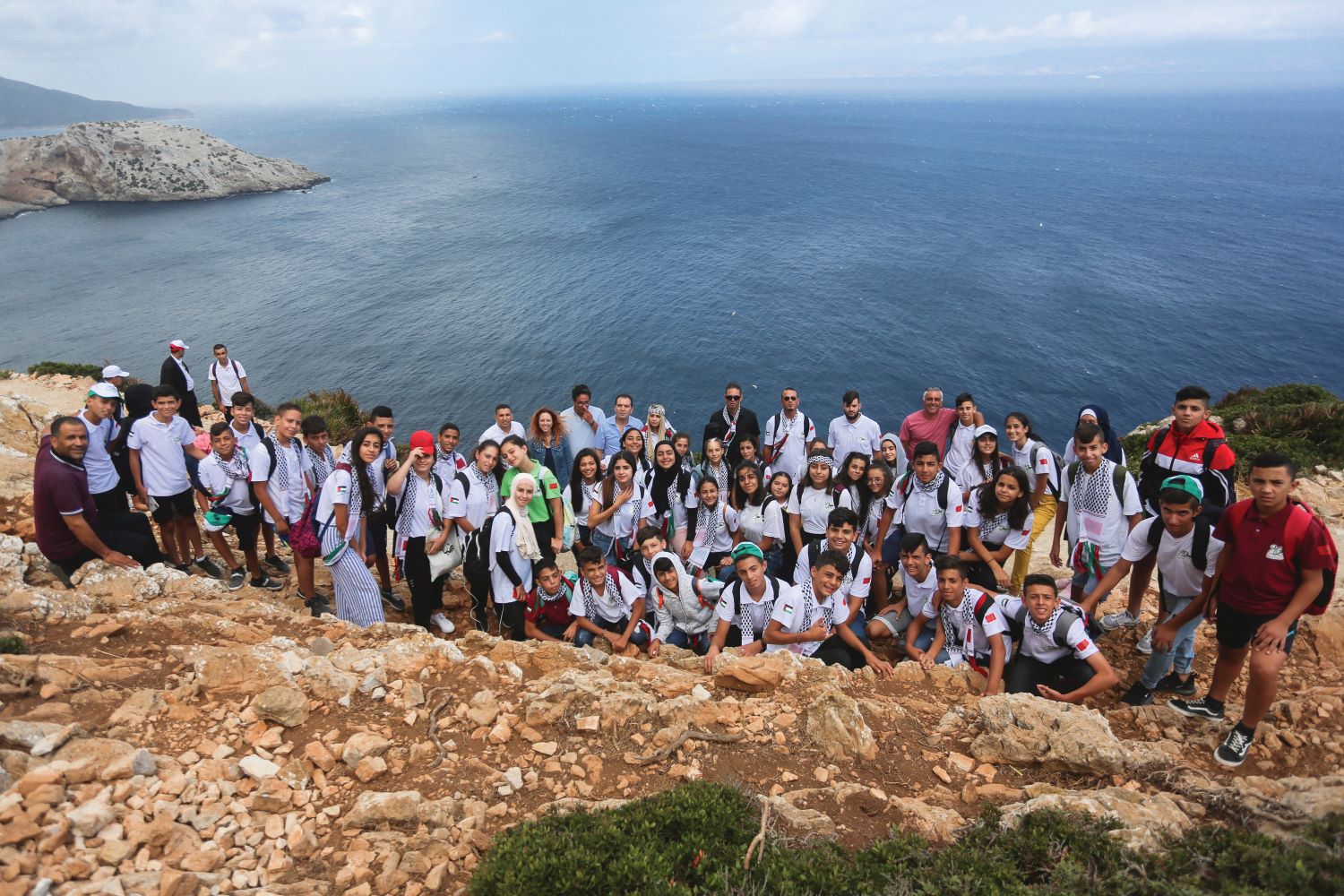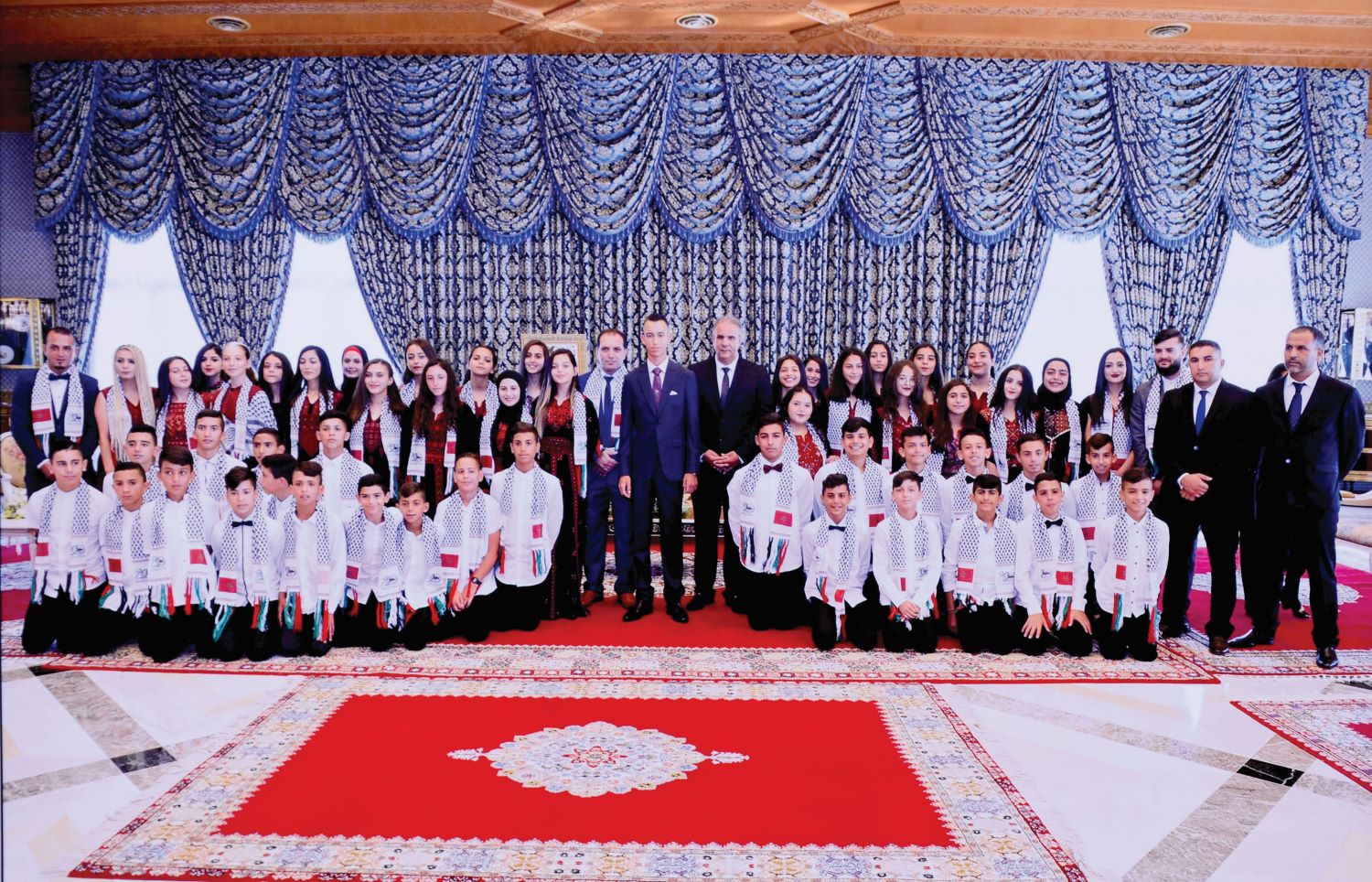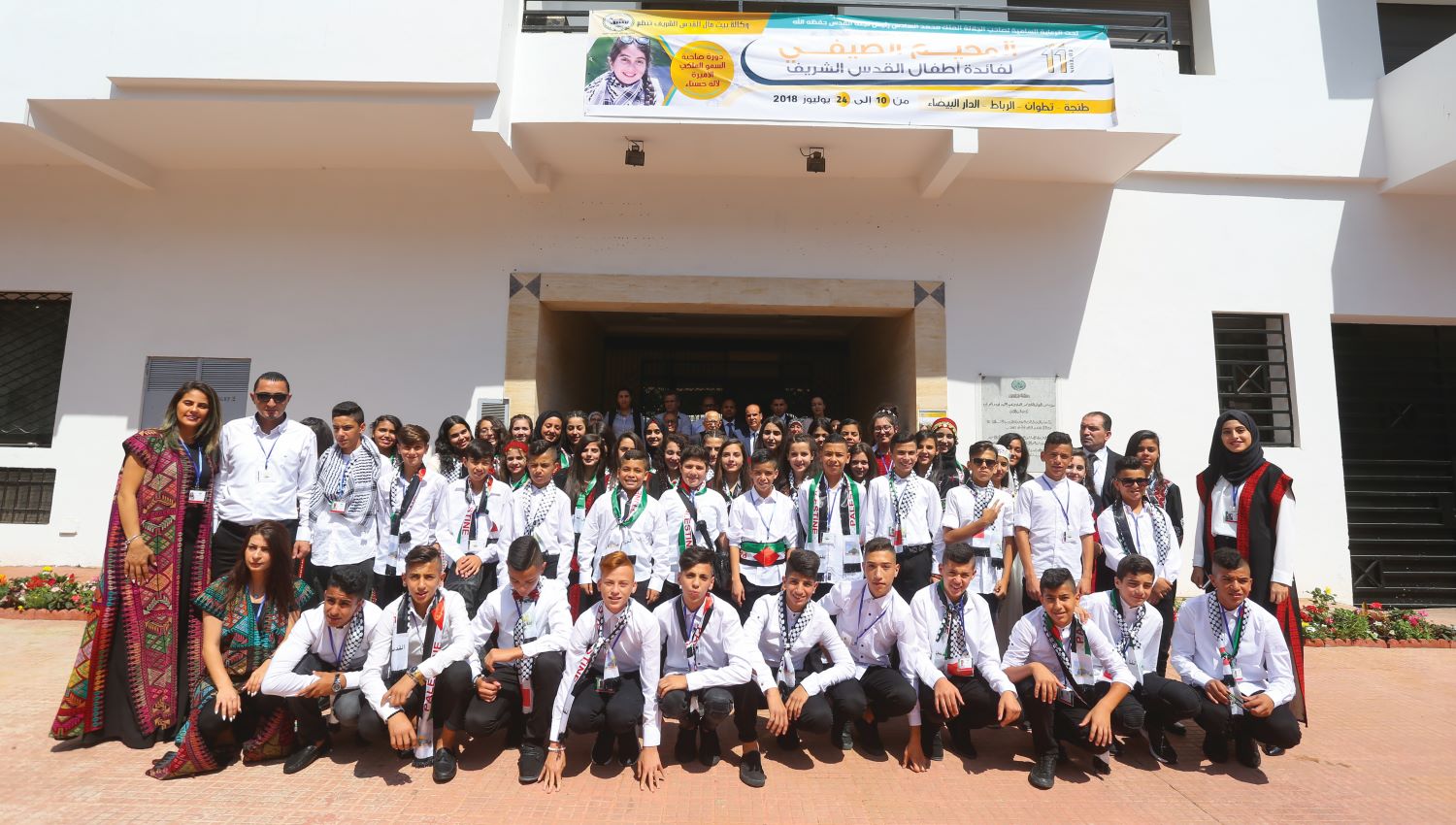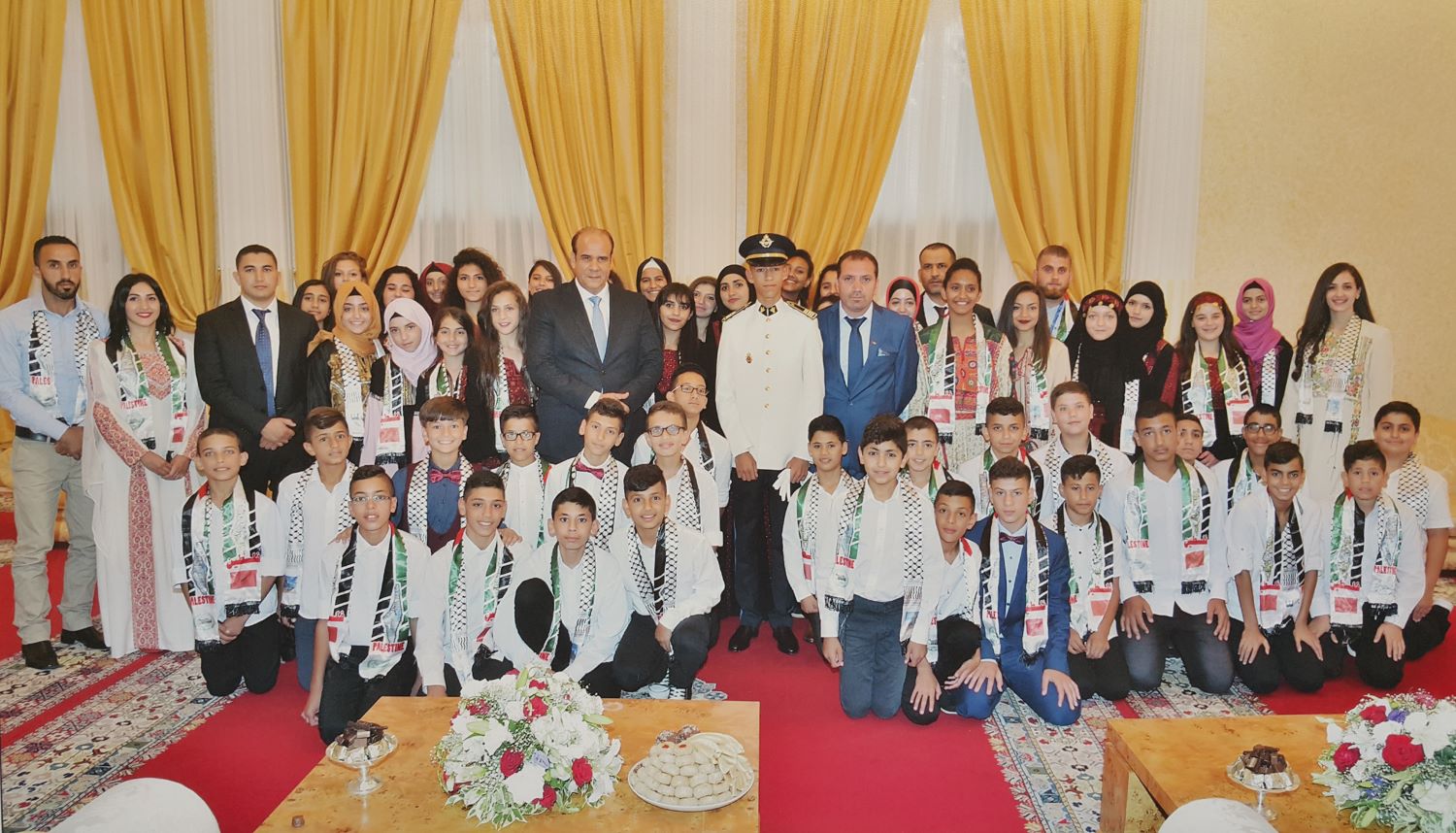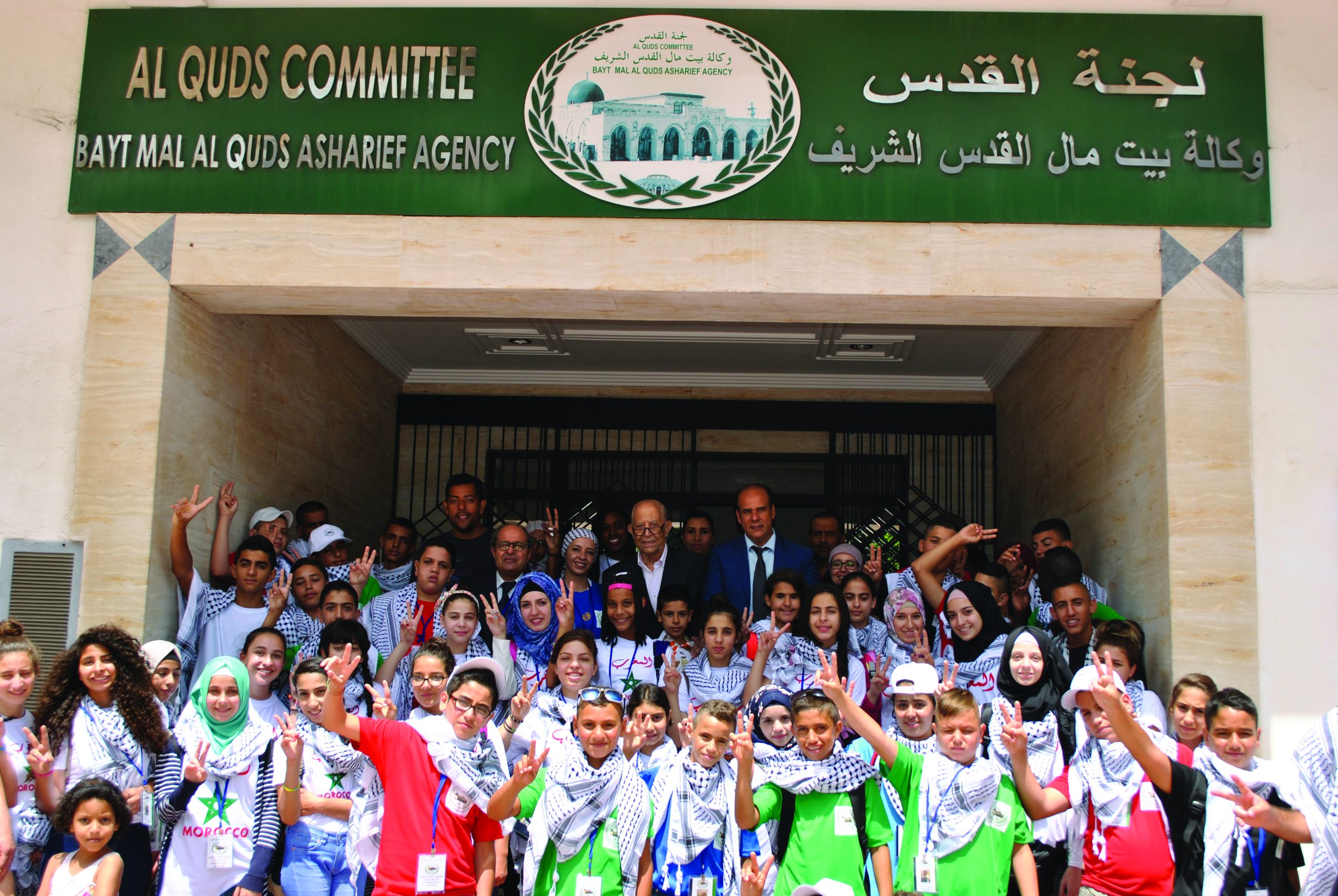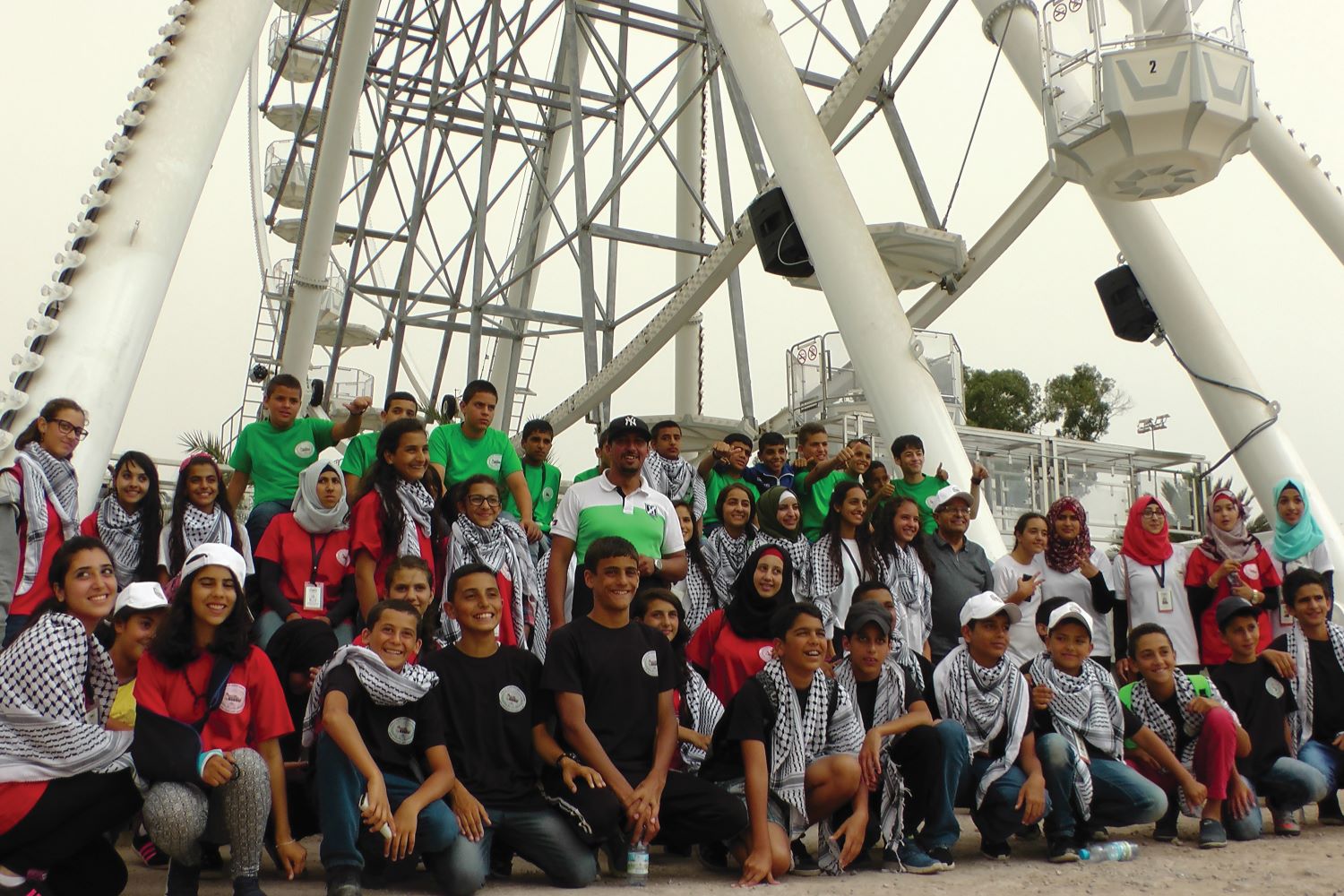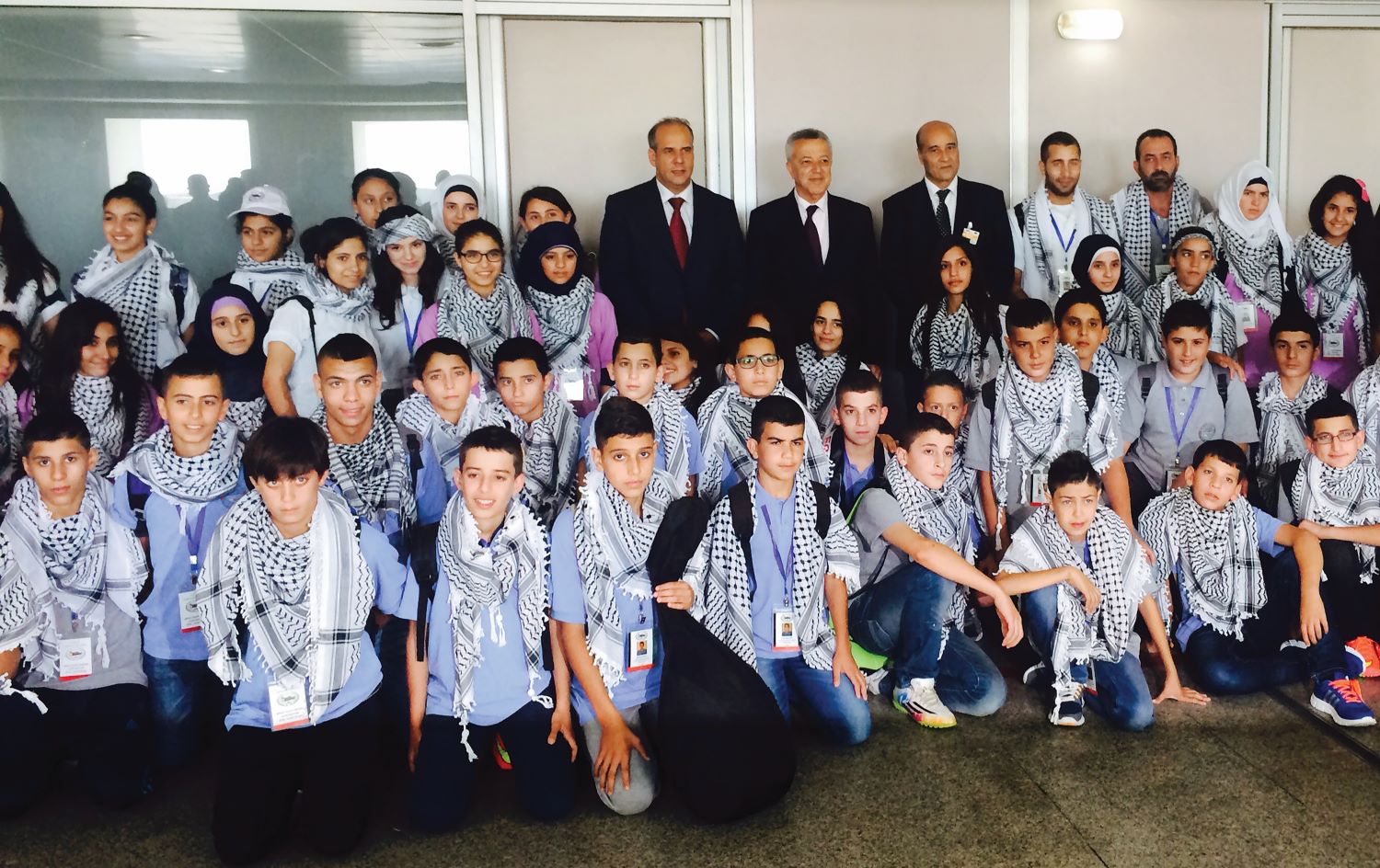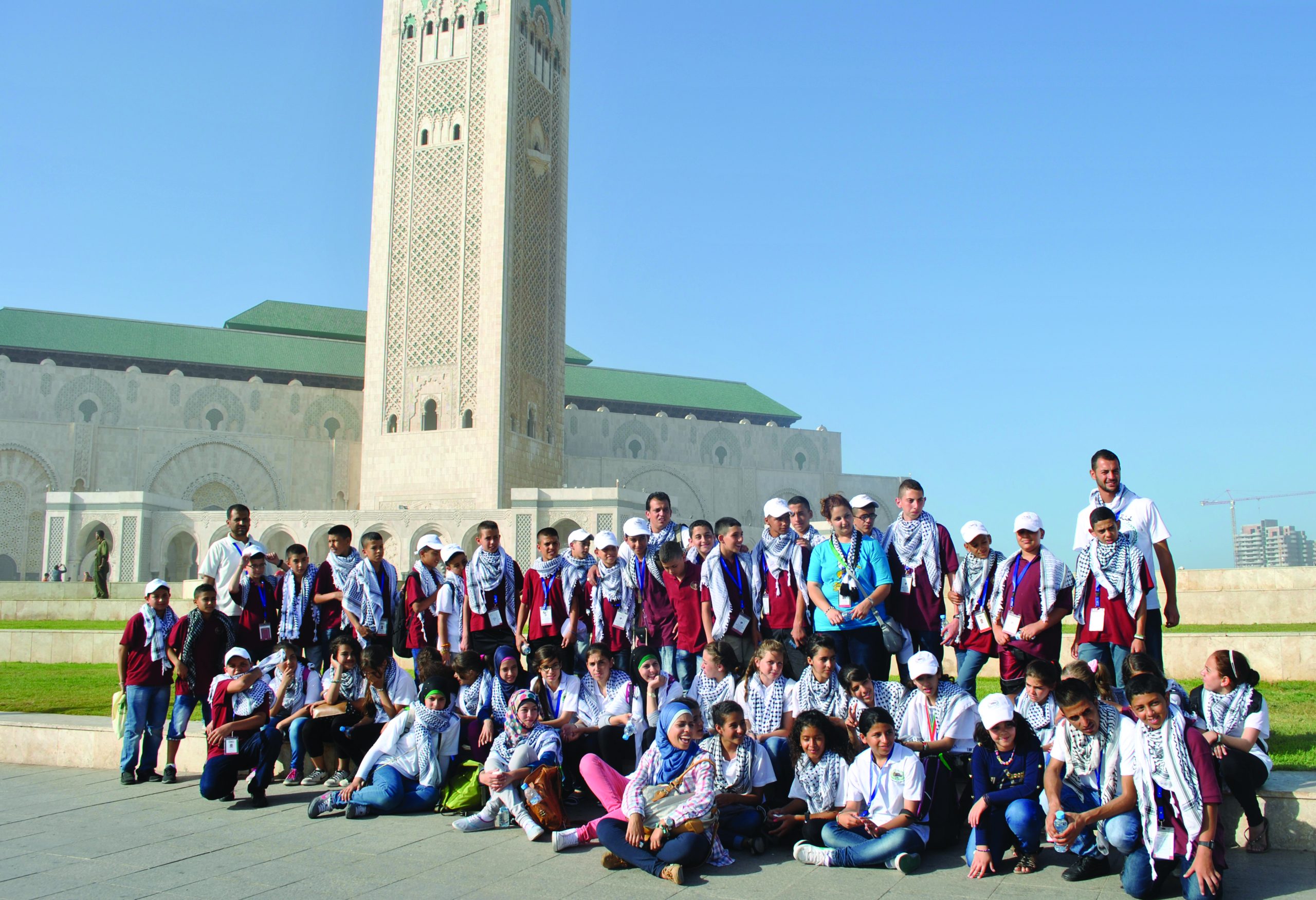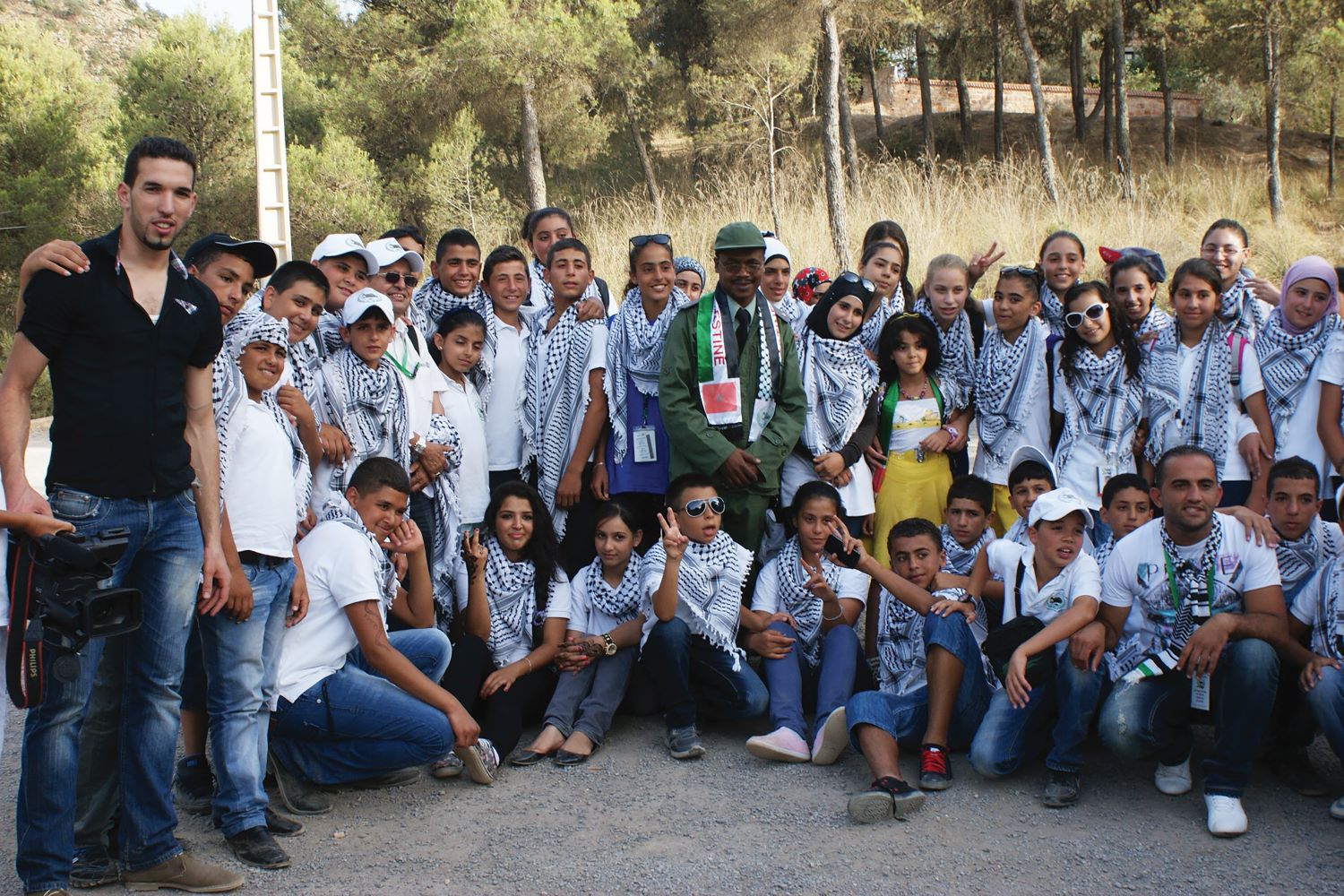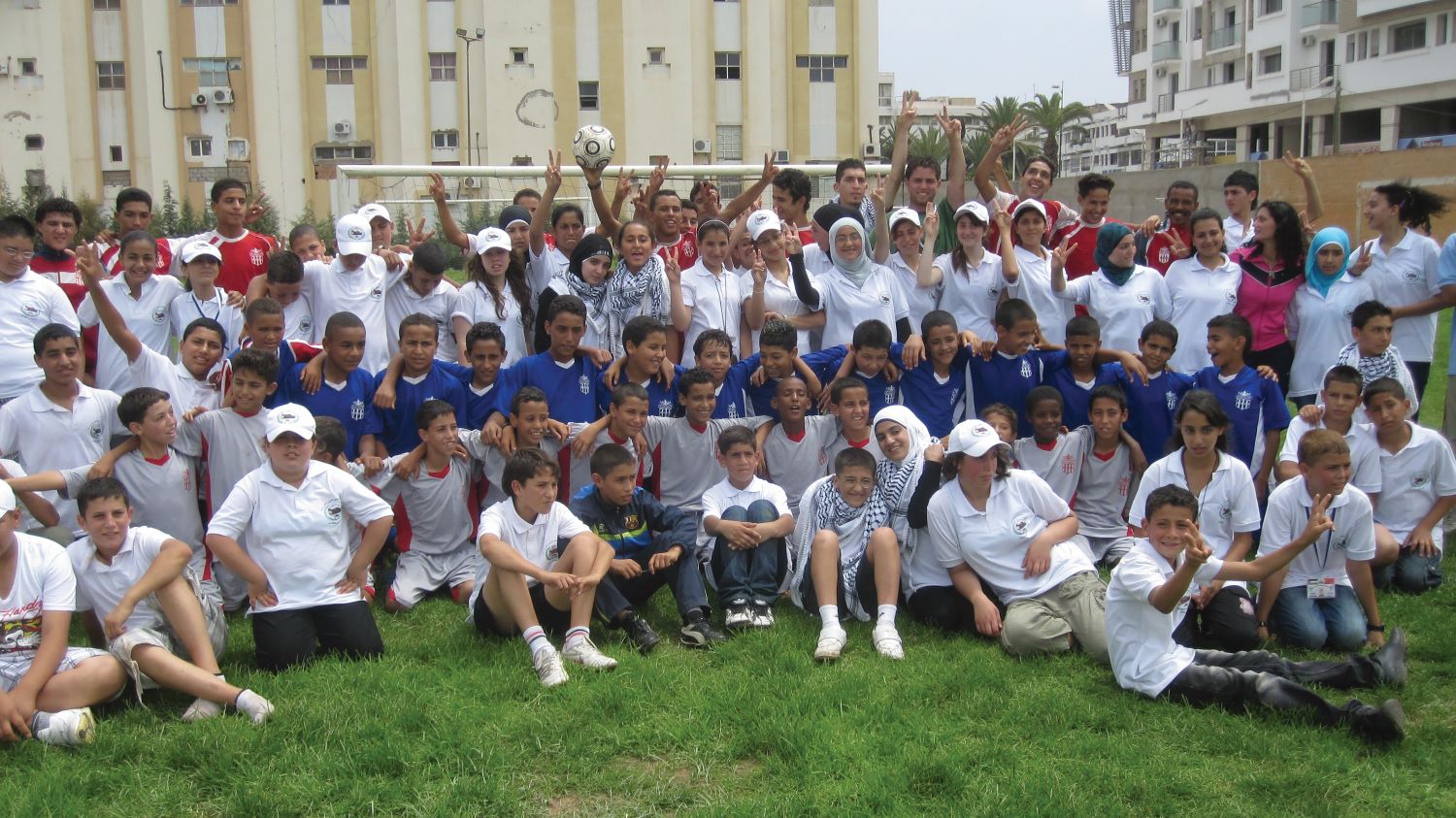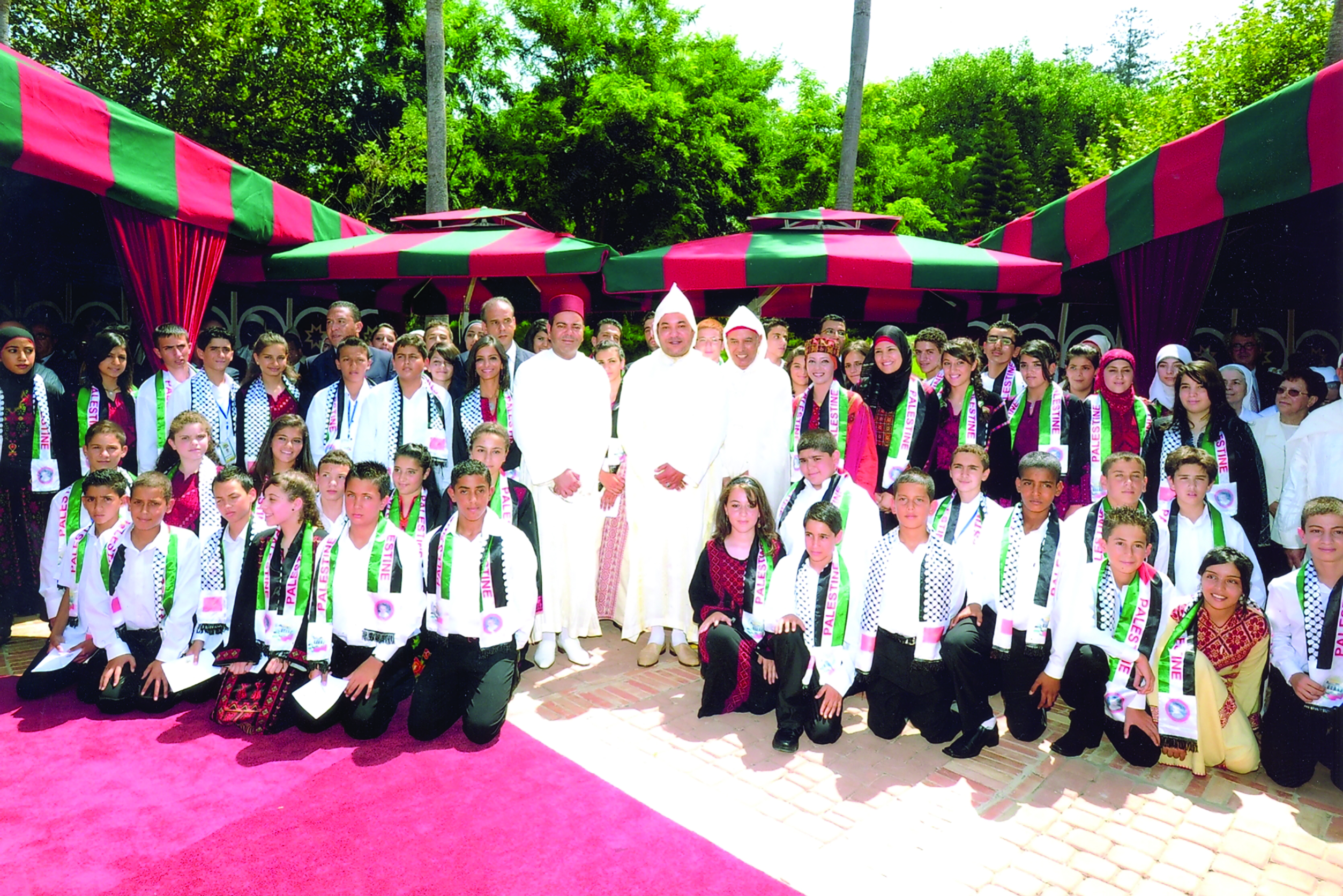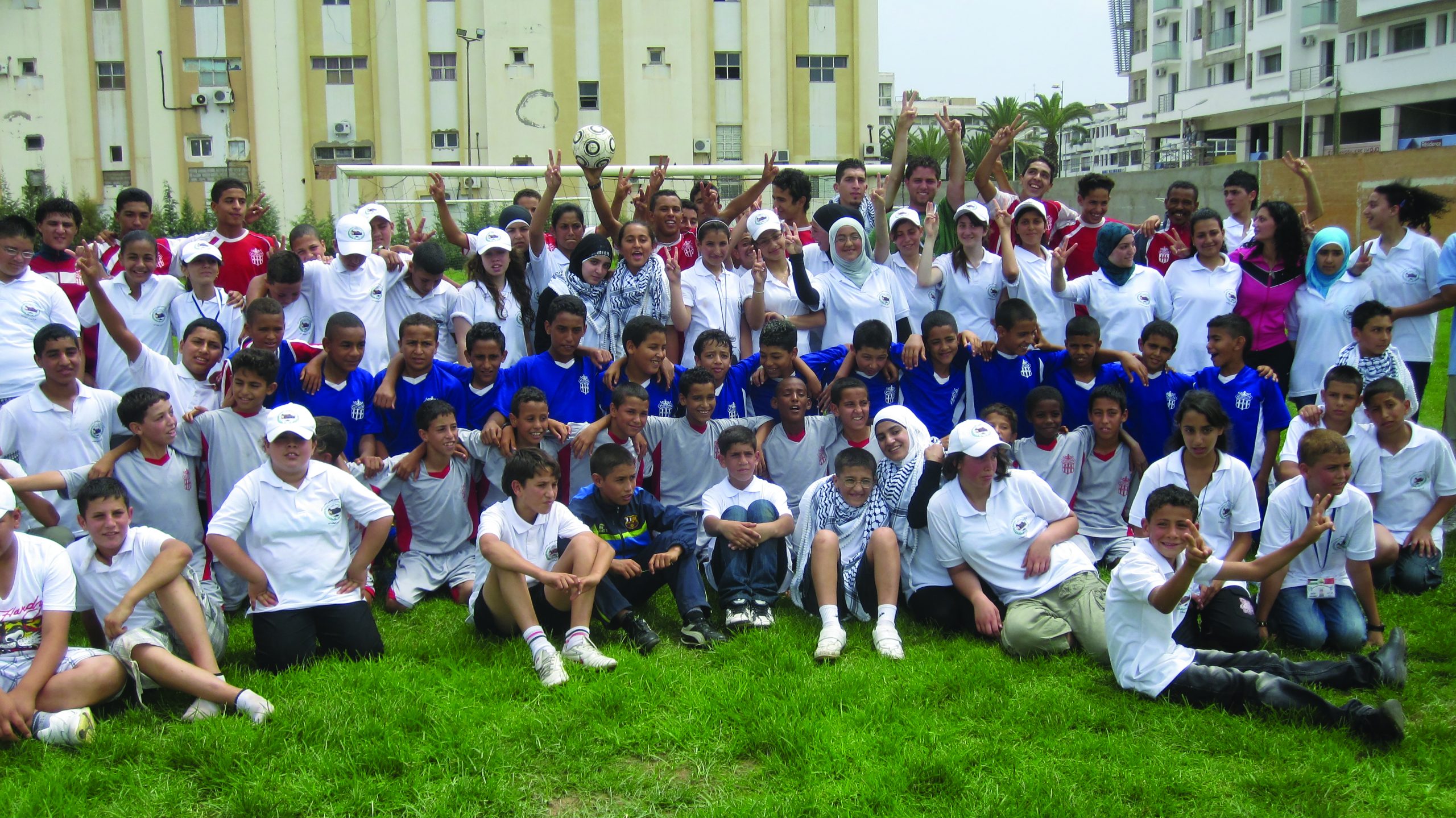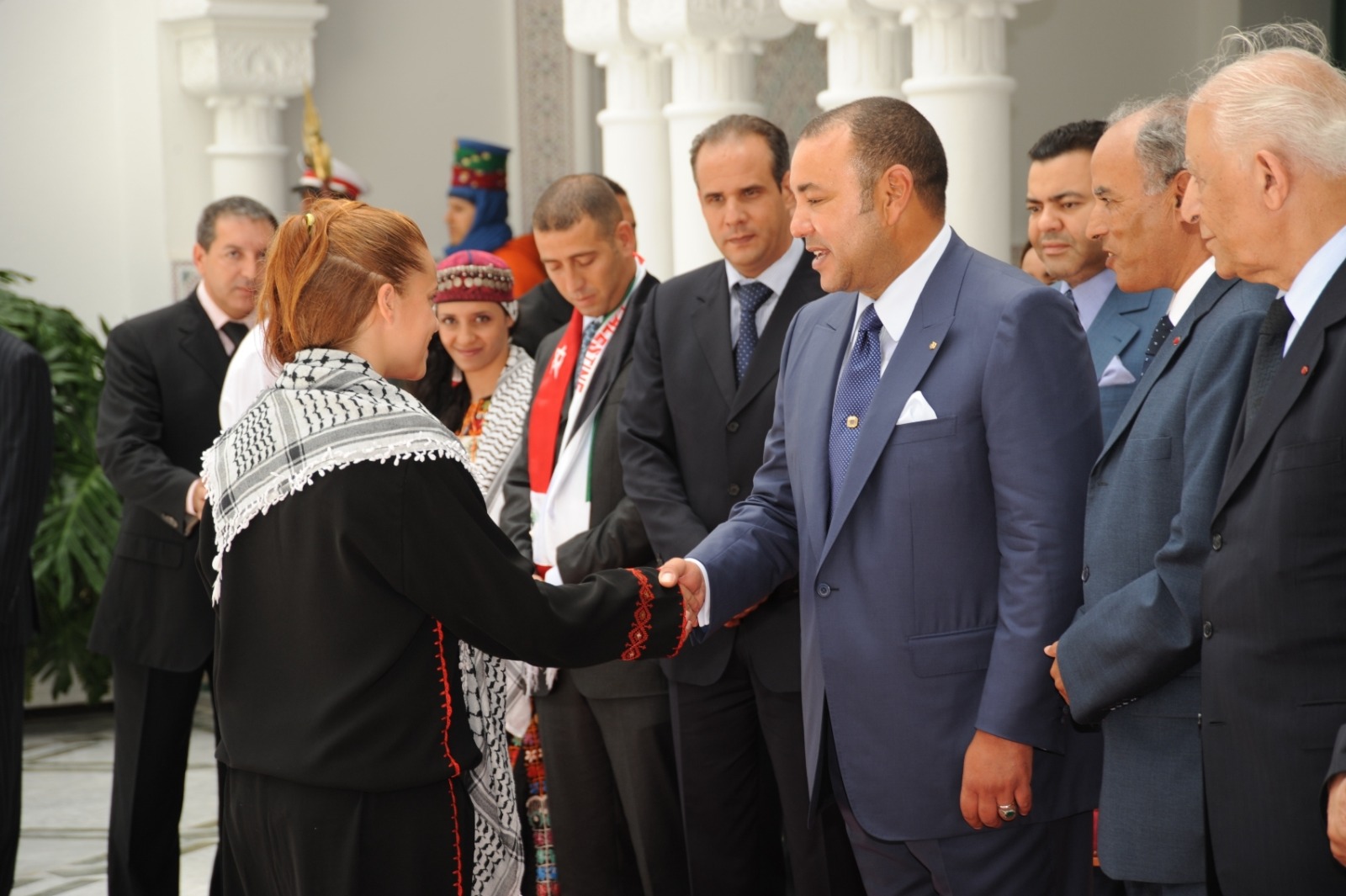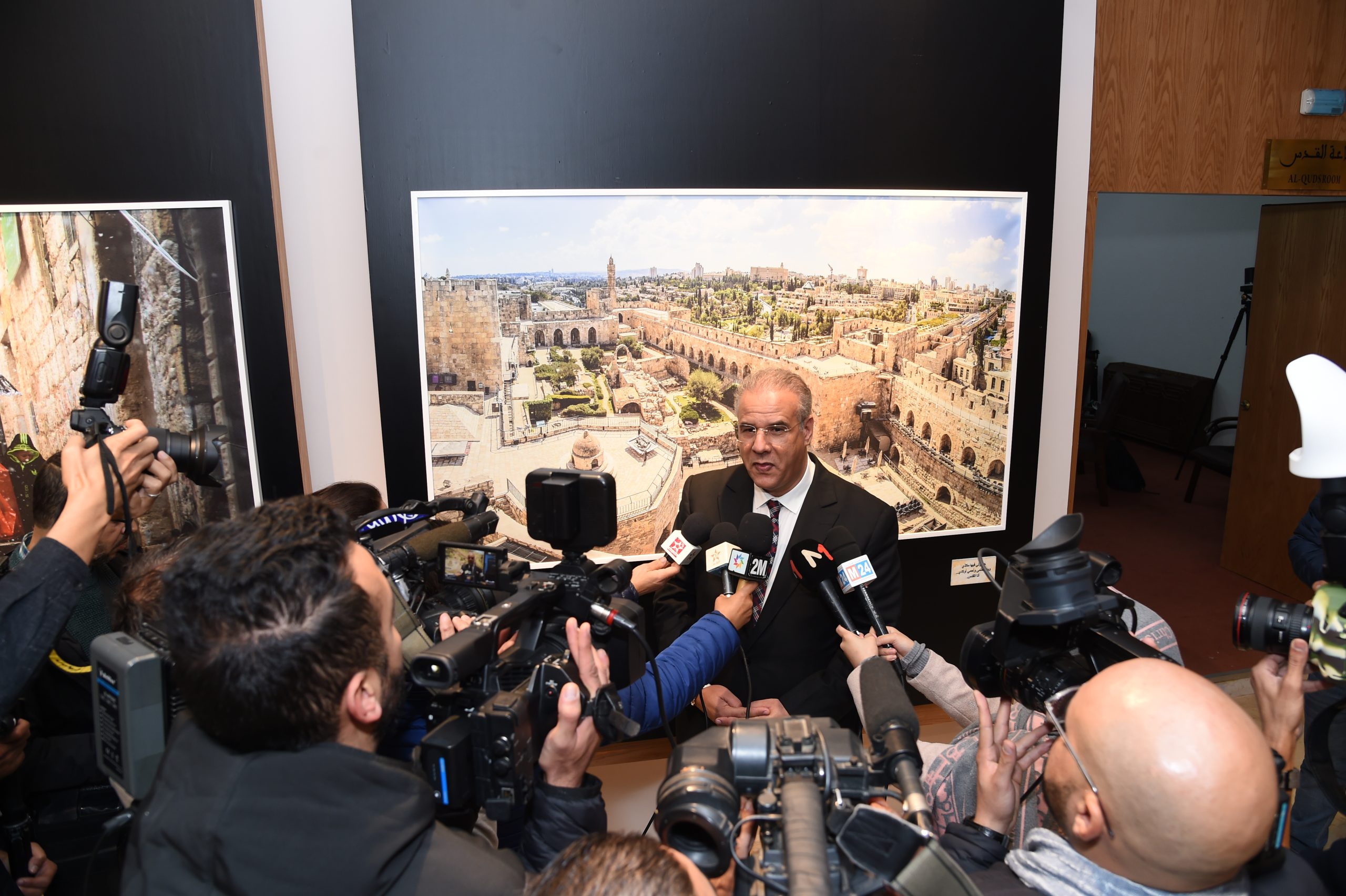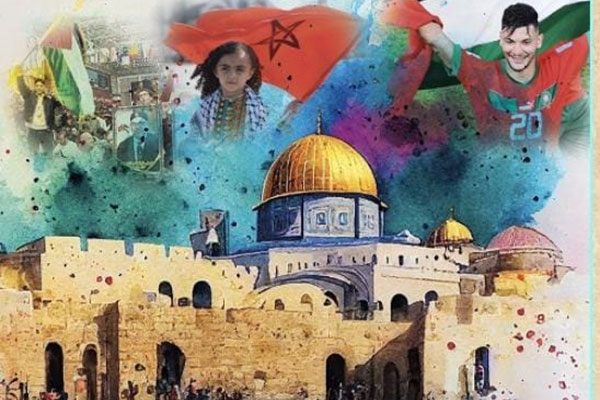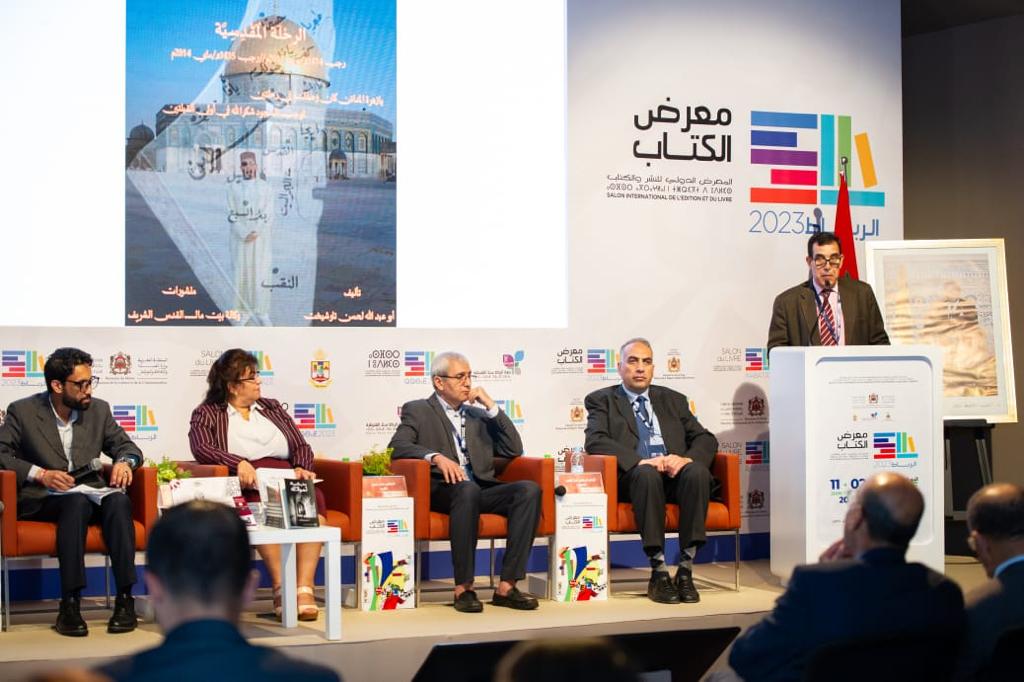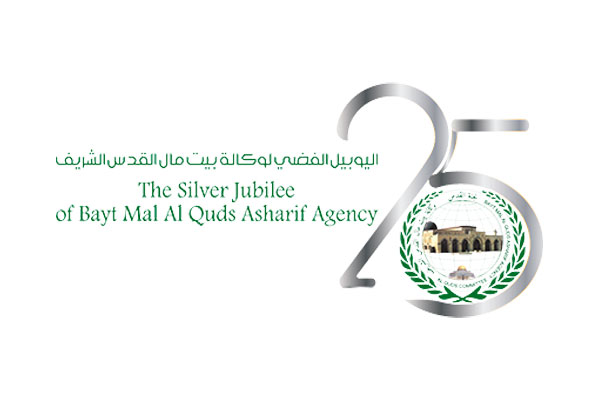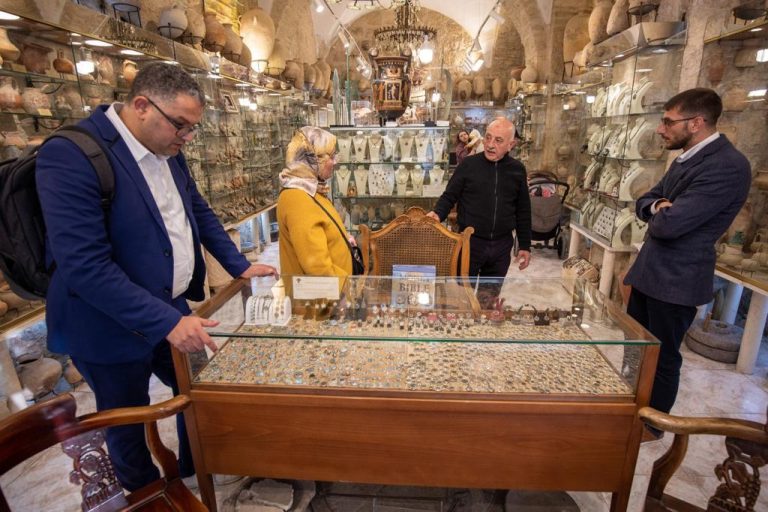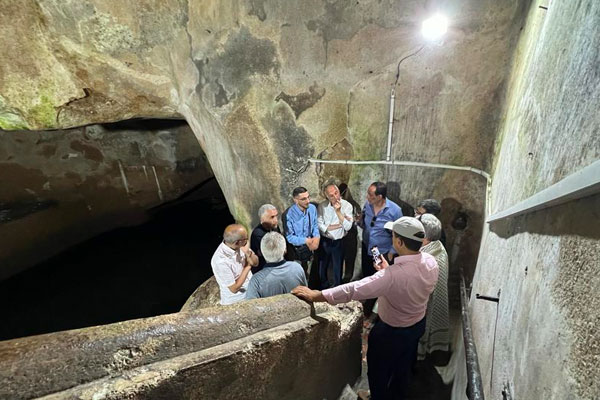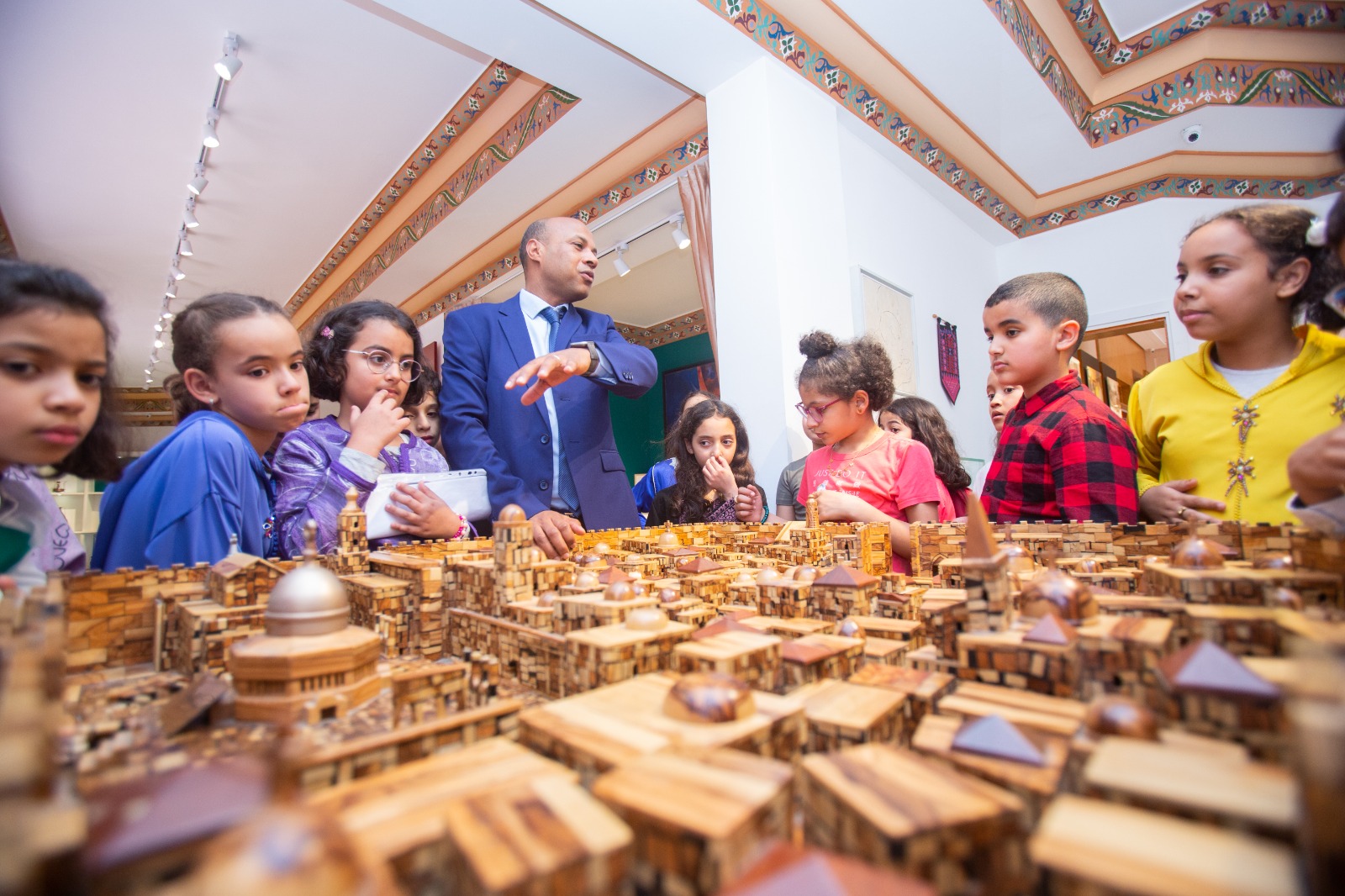Tangier – Yesterday, Wednesday, in Tangier, the events of the “Harat al-Maghariba” indoor football (boys) and basketball (girls) tournament kicked off, with the participation of junior boys and girls from Jerusalem, taking part in the 16th edition of the annual summer camp hosted by Morocco until August 26, under the High Patronage of HM King Mohammed VI, Chairman of the Al-Quds Committee.
The boys’ and girls’ teams from Jerusalem qualified for the finals, to be held at the “Ziatine” Sports Hall in Tangier on Friday evening, after advancing through elimination rounds marked by spirited competition, camaraderie, and the enduring historic ties between the Moroccan and Palestinian peoples.
On the opening day of the indoor football tournament, the children of Jerusalem displayed shirts bearing the name of Achraf Hakimi, captain of the Moroccan national team, as a gesture of appreciation for him and the squad that brought pride to Arab football in the recent World Cup in Qatar.
The current edition of the summer camp for Jerusalem’s children, organized by the Bayt Mal Al-Quds Asharif Agency (BMAQ) in partnership with the Ministry of Youth, Culture, and Communication – Youth Sector, offers a rich program blending recreation and entertainment with educational trips and cultural exchanges between Palestinian children and their Moroccan peers.
The program features artistic and sports competitions between the children of Jerusalem and their Moroccan peers, along with sightseeing trips to Casablanca, Rabat, Tangier, Tetouan, M’diq, and Chefchaouen, where they visit historical landmarks and learn about key economic projects in the Kingdom, including infrastructure, transportation networks, and major sports facilities.
As in previous years, the children of Jerusalem join Morocco’s national celebrations that coincide with their visit, presenting selected artistic performances featuring the Moroccan national anthem and excerpts from “Nidaa Al-Hassan” (Call of Hassan), accompanied by choreographed displays inspired by Palestinian heritage and the traditional Dabke dance.
